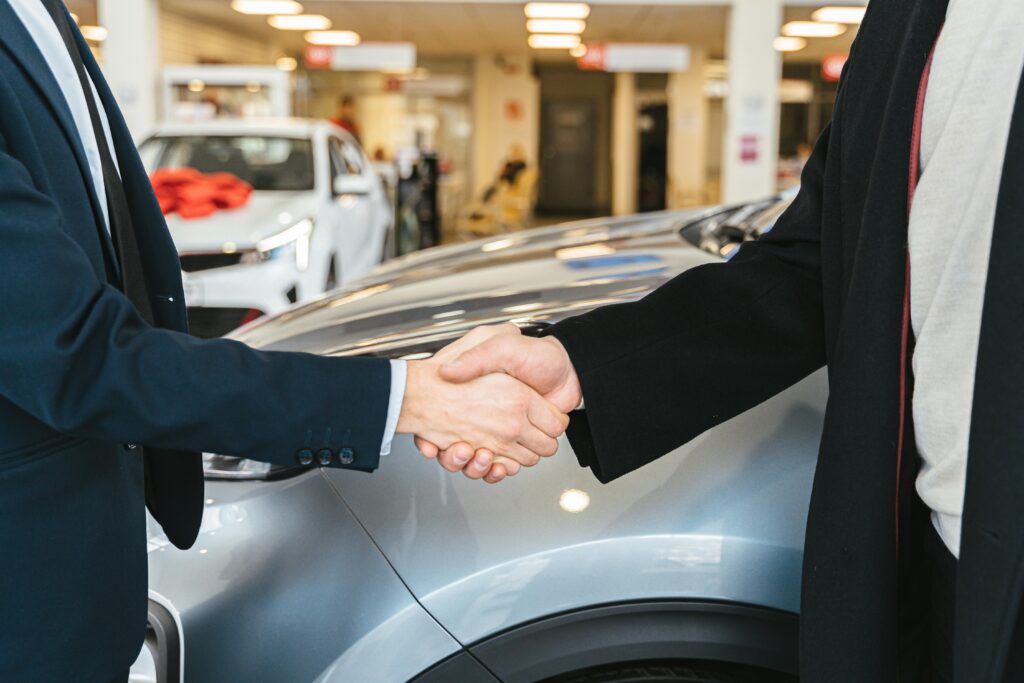Founded by auto industry vets, the startup is bringing safety and security to private party car sales, and giving independent dealerships better tech tools to power checkouts.

When it comes to buying a used car, purchases are increasingly taking place between private parties and at independent dealerships. Cox Automotive estimates that 45% of used vehicle sales are neighbor-to-neighbor deals that bypass traditional dealers, and more than half of retail sales take place at independent dealers.
While there’s been technological advancements in the way people find vehicles and list cars to sell, the process of actually purchasing a vehicle looks the same as it did 30 years ago, according to Ed Brojerdi and Craig Nehamen, the co-founders of car sale platform Caramel.
“Private party [sales] is the wild wild west,” Brojerdi said. “It’s folks meeting up at a Walmart parking lot with a bag of cash.”
With Caramel, Brojerdi and Nehamen, who both previously led auto leasing firm Fair.com, which was acquired by online car marketplace Shift in 2022, have created a way for buyers and sellers to take the traditionally complicated process of purchasing a car into an online transaction that takes just five minutes. And it brings a new level of safety and security to the car buying experience, the founders say.
“I would not be surprised if every vehicle transaction, from dealer to marketplace to peer-to-peer, is powered by Caramel in the next decade.”
How it works: Caramel is a checkout tool that focuses on the transaction itself. For private party sales, the startup allows buyers and sellers to negotiate a price, complete the sale, and Caramel digitizes all aspects of the transaction—from signing title transfers to handling the registration.
Caramel can properly verify both the buyer and seller, identify if there are any liens on the vehicle, offer financing to buyers, and deliver the vehicle once the transaction is complete. It can also identify potentially thorny items for buyers, like if the seller doesn’t have a clean title, or if a car has unpaid parking tickets that are going to transfer with it.
“It’s the approach of bringing all the safety and security of a franchise BMW dealer transaction, but putting it into a digital box,” Brojerdi said.
For electric vehicle sales, Caramel is able to transfer tax credits from the seller to buyer, which is something you typically can’t do during private party sales.
“[Buying a car] has all the same complexities of buying and selling a house, and you’re doing it on your own,” Nehamen said. “With Caramel you complete a five-minute checkout process and we take care of everything for you.”
Powering independent dealerships: Along with assisting private party buyers and sellers, Caramel is also giving a needed tech upgrade to small, independent dealers. These dealerships use Caramel’s checkout tool to power their transactions, giving them an automated way to handle transactions and compete with larger dealerships.
Caramel also powers checkout for online auction sites and marketplaces, giving shoppers a tool to process checkouts after winning a car at auction or making a purchase online.
Caramel, which launched in the first quarter of 2023, has seen 5X growth in the last six months in revenue and number of cars being sold through its platform, Brojerdi said.
Investor perspective: “Caramel’s product is unique because it benefits both the businesses and the consumers that are using it,” said Declan Zidar, senior associate at TechNexus, an early Caramel investor. “I would not be surprised if every vehicle transaction, from dealer to marketplace to peer-to-peer, is powered by Caramel in the next decade.”
Funding: Caramel raised $12 million in seed funding last year from TechNexus, FJ Labs, Hearst Ventures, Zeev Ventures, Primera Capital and Audeo Ventures.
